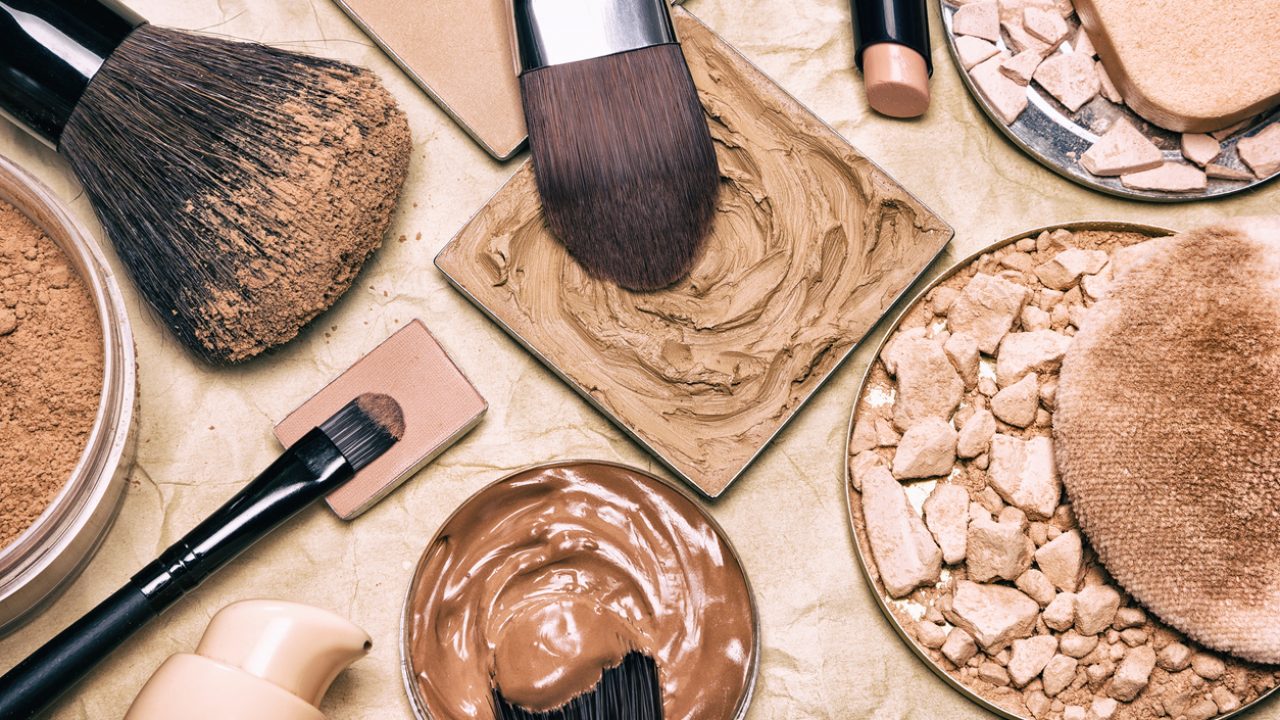
Choosing the best foundation can be daunting, particularly if you’ve been using the same one for years and you’re after an upgrade.
Your skin changes throughout the year; it gets colder and drier in winter and picks up colour in summer and will also vary depending on your age and your skincare routine. Sadly, the same foundation won’t work for your whole life.
READ NEXT: How to find your perfect foundation match
To help you navigate the thousands of options, here are evidence-based tips based on the science of how foundation works and what ingredients you need to look out for.
Once you have a better idea of what your skin needs, our list of the best foundation will narrow down your choices.
Foundation can come in the form of a solid or a liquid but whether it’s a powder, a foam, a liquid or even a spray, most foundations are made up of the same three basic ingredients; a moisturiser, colourant and filler.
The filler makes the foundation spread evenly over your skin while giving it texture, the base is moisturising to prevent your skin drying out and the colourant provides the pigmentation.
READ NEXT: The science of moisturiser
Most foundation bases are made of oil, silicone or water, and sometimes wax. Knowing whether your foundation has an oil, silicone or water base is important because this determines how the foundation will mix with your other make-up, particularly primers and concealers.
If your primer is oil-based, and your foundation is water-based, the two might not mix easily which can result in patches of foundation gathering in certain places, or streaks of make-up separating.
To determine whether a foundation is oil, silicone or water-based, look at the first couple of ingredients.
The first ingredient will normally be water, but this does not mean it is water-based, it is just for the liquid consistency.
In terms of fillers, traditionally foundations use ingredients like talcum powder, also known as magnesium silicate, kaolin or starch, which have no effect on the way the foundation actually looks. However, ‘functional’ fillers like mica, silica and bismuth oxychloride provide coverage and texture in the product.
READ NEXT: How to apply foundation like a pro
Pigments are used to determine the colour of the foundation. Common ingredients for pigment include iron oxides and titanium dioxide.
“Foundation contains colourants that cover your skin’s natural colour, so people see the colour of the foundation,” says cosmetic chemist Perry Romanowski. “It also contains film-forming ingredients so that the colour looks more even and natural.”
Many of these ingredients are also found in the best BB creams and BB creams for oily skin so it’s worth checking to make sure your beauty balm complements your skin and your foundation.
Picking the best colour foundation for you can be a difficult task, especially as complexions change throughout the year. The only way to do this accurately is to try a sample and see if it matches with your skin.
Firstly, determine whether your skin has warm, pink tones or cool, yellow ones, which will determine the pigment base. Then, if you can, try to see the foundation on your skin in natural light rather than the artificial light of the shop you might be trying them on in. We’ve got more advice on choosing a foundation match here, and tips from our resident makeup artist Victoria Howe in her how to apply foundation explainer.
On top of looking good, a foundation can also be used as a form of skincare in itself. If you have a specific skin problem, looking for certain ingredients in your foundation and BB cream, especially BB creams for oily skin might help. For instance, if you have oily skin look for kaolin clay or silica, alumina, corn-starch, or talc, which are all absorbent powders that will help control oil and prevent shine.
Ingredients to look out for:
If you have dry skin, look for ingredients like natural food oils, squalane, or glycerides.
Ingredients to look out for:
Foundations that contain salicylic acid, also known as BHA or beta hydroxy acid, and benzoyl peroxide can help control spots and acne.
Ingredients to look out for:
You can read more about the truth about the acids in your skincare in our guide.
It should also be noted that if you have acne-prone skin, or suffer from blemishes, make sure you’re keeping your brushes and blenders clean. Makeup tools are breeding grounds for bacteria and you could find you’re spending a fortune on products and skincare to just undo their benefits by using dirty tools. You can find out how to clean makeup brushes and how to clean beauty blenders in our explainers.
Another thing to look for in foundations, especially for people with mature skin, is whether or not they contain SPF.
Sun protection should be a key part of anyone’s skincare routine but finding a foundation that contains it can make the process easier. For mature skin, common problems include wrinkles, hyper-pigmentation, dry or dull skin.
If you are worried about wrinkles, look for peptides, hyaluronic acid, argon oil or collagen. For discolouration, look for foundations that are hydrating that can help improve your complexion, like vitamin A, also known as retinols, or vitamin C, also known as ascorbic acid.
Ingredients to look out for:

Abigail is a leading science journalist writing about space, sustainability, technology and culture. She is author of The Art of Urban Astronomy, a must-have guide to the night sky that guides you through the seasons and learn about the brightest stars and constellations, the myths and legends of astronomy and how to identify star clusters and galaxies.
You must be logged in to post a comment.

Comments